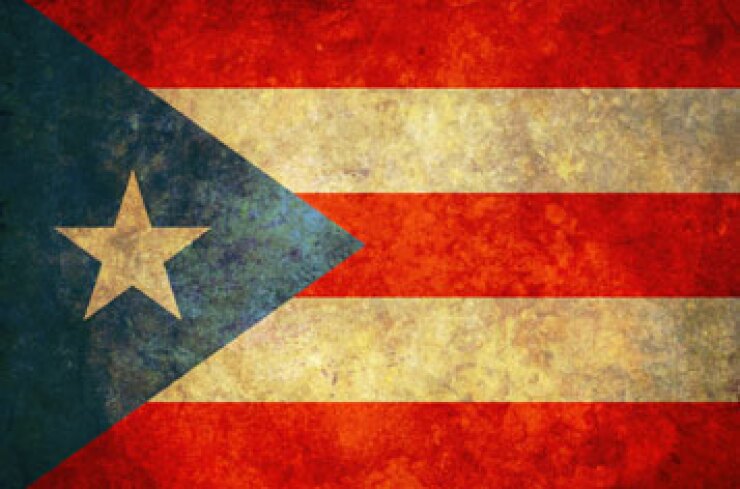
The Puerto Rico government is taking steps to shift up to $2.8 billion in public deposits from private banks to the government's bank, the Government Development Bank of Puerto Rico.
The government is trying to increase the GDB's liquidity and ward off potential downgrades of its bonds to speculative grades.
When it placed Puerto Rico's general obligation and other bonds on review for a downgrade on Dec. 11, Moody's Investors Service cited the GDB's narrowed cash position.
"While liquid assets at the GDB exceeded $3.7 billion at the end of fiscal 2012, that amount has narrowed significantly due to continuing loans to the commonwealth and other authorities and the inability to refinance certain lines in the long-term market," analyst Lisa Heller wrote. "The GDB reports that the commonwealth's agencies, public corporations and municipalities maintain approximately $2.8 billion at private banking institutions, a portion of which could be moved to the GDB on short notice. As the GDB acquires more cash through an increase in deposits, its capacity to make loans to other governmental entities expands."
In a "credit focus" piece Moody's released Dec. 23, Heller estimated that the GDB had $2.27 billion in net liquid assets as of Sept. 30, 2013.
The Puerto Rico government is now pushing a bill through the legislature that would require the public corporations and agencies to shift most of their deposits from private banks to the GDB.
The Senate has passed the bill. The House is expected to consider it when it convenes in the middle of this month.
This shifting of the assets is part of a larger bill that would regulate the conditions under which the GDB could lend to public corporations. It would impose stricter requirements on public corporations for them to get loans from the GDB.
Since the municipalities are independent of the central government, it is unclear if the central government could require them to deposit their cash at the GDB.
The Senate amended the bill to allow some agencies to keep some of their money in private banks. The GDB does not provide all the services that the banks do, said Arturo Carri-n, executive vice president of the Puerto Rico Banking Association.
"We believe that having a single treasury account for the Commonwealth of Puerto Rico will allow for more efficient funding and cash management for the entire government," said GDB interim president José Pagán Beauchamp. "Our plan is to move certain government entity deposits from private banks to the GDB in a measured fashion. We are confident that these transfers will not have a significant impact on the ability of Puerto Rico private banks to continue providing loans and mortgages to small businesses and families, which is critical to the island's economic growth."
According to the Federal Deposit Insurance Corp., as of June 30, 2013 there were $52.5 billion in deposits at Puerto Rico banks. Withdrawals of $2.8 billion would represent 5.3% of the banks' deposits.
While the deposit to the GDB would be a credit negative for Puerto Rico's private banks, the effect would be minimal, said Joseph Pucella, vice president for the banking rating team at Moody's Investors Service. First, the size of the withdrawal from the private banks would be manageable relative to total system deposits. Second, the deposits are collateralized.
Carri-n generally agreed with Pucella and said that the collaterization is for bond amounts above the first $250,000. Below that level the FDIC insures.
The government entities require the banks to put up high quality collateral to be associated with their deposits. Examples of the collateral might be United States treasury bonds or high-quality lines-of-credit. The withdrawal of government deposits from the private banks would mean these securities would no longer be encumbered. The banks could then use them for additional borrowing.
The government's withdrawal of its deposits from the banks will probably not have a significant impact on their lending practices, Pucella said.
A Puerto Rico government spokesman said the movement of money from the banks to the GDB would be gradual.
Moody's rates four of the eight banks operating in Puerto Rico. Banco Popular de Puerto Rico (largest in deposits) has a Ba2 rating, FirstBank of Puerto Rico (second in deposits) has a B2 rating, Banco Santander Puerto Rico (fourth in deposits) has a Baa1 rating and Doral Financial Corp. (seventh in deposits) has a Caa3 rating.
Carri-n said that while the shift of deposits would be a negative for the private banks, it would not be a big negative. It is very important to prevent the commonwealth government's bonds from being dropped to a speculative grade, he said.





